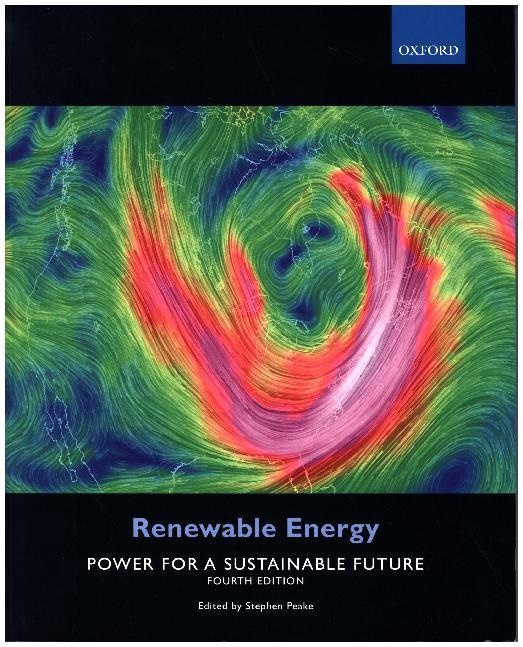Mehr lesen
The provision of sustainable energy supplies for an expanding and increasingly productive world is one of the major issues facing civilisation today. Renewable Energy examines both the practical and economic potential of the renewable energy sources to meet this challenge. The underlying physical and technological principles behind deriving power from direct solar (solar thermal and photovoltaics), indirect solar (biomass, hydro, wind and wave) and non-solar (tidal and geothermal) energy sources are explained, within the context of their environmental impacts, their economics and their future prospects.
Renewable Energy provides both perspective and detail on the relative merits and state of progress of technologies for utilizing the various 'renewables'. The analysis considers emissions, sustainability, cost implications and energy security, as political and economic pressures move society towards a low-carbon future. From an overview of basic energy conversion processes, through a discussion of the individual renewable sources, to a concluding examination of the prospects for their integration into national and international networks and the outlook for renewable energy, this book provides a valuable insight into prospects for the renewables.
Online resources
Renewable Energy is accompanied by online resources which include:
For students:
· Auto- marked multiple choice questions to accompany each chapter
· Curated links to further information and up-to-date energy statistics.
For registered adopters of the book:
· Figures from the book: available to download for use in lectures
Inhaltsverzeichnis
- 1: Introducing Renewable Energy
- 2: Thermodynamics and Heat Pumps
- 3: Solar Thermal Energy
- 4: Solar Photovoltaics
- 5: Bioenergy
- 6: Hydroelectricity
- 7: Tidal Power
- 8: Wind Energy
- 9: Wave Energy
- 10: Geothermal Energy
- 11: Integrating Renewable Energy
- 12: Renewable Energy Futures
- A1: Appendix: Investing in renewable energy
- A2: Appendix: Units
Über den Autor / die Autorin
Stephen Peake is senior lecturer in environmental technology at The Open University. Over the last 19 years, Stephen has worked on climate change in various interesting guises: as a researcher at the University of Cambridge, as a Fellow of the Royal Institute of International Affairs in London (including a stint at the Shell International Petroleum Company), as a Fonctionnaire at the International Energy Agency within the Organisation for Economic Co-operation and Development in Paris, and as a diplomat with the United Nations Framework Convention on Climate Change in Bonn, Germany. Over the years, he has been called on to give evidence to various national governments and international organisations including: the Fuel Economy Panel of the American Automobile Manufacturers Association in Detroit, USA; the Standing Advisory Committee on Trunk Road Assessment; and the UK Royal Commission on Environmental Pollution.
Zusammenfassung
This book provides both perspective and detail on the relative merits and state of progress of technologies for utilizing the various 'renewables'. The analysis considers emissions, sustainability, cost implications and energy security, as political and economic pressures move society towards a low-carbon future.
Zusatztext
This textbook continues the high standards of previous editions in terms of the clarity with which it explains the technologies while offering high quality graphics.
Bericht
Review from previous edition I have reviewed many textbooks on renewable energy and this one stands clearly above them all. It provides an excellent balance between technical content and practical application. Douglas J Reinemann, Professor of Biological Systems Engineering, University of Wisconsin-Madison, USA

